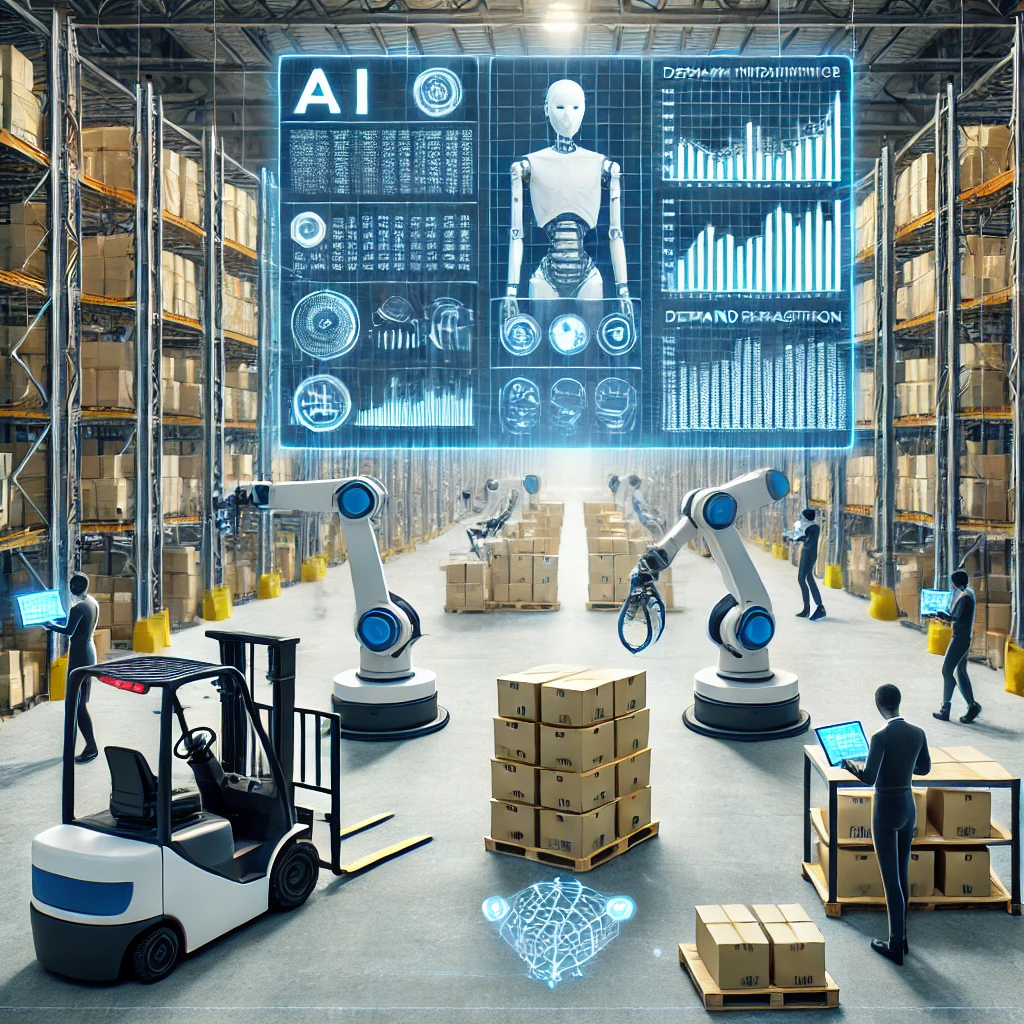How AI is Transforming Retail: Smarter Inventory, Happier Customers, and More Sales
Table of Contents
- Smarter Inventory Management and Demand Forecasting
- Personalized Customer Experiences That Boost Sales
- AI-Powered Customer Support That Works 24/7
- Better Decisions with AI-Powered Business Intelligence
- Final Thoughts: AI is the Future of Retail
Retail businesses face big challenges every day. Stocking the right products, keeping customers happy, and making smart business decisions are all tough without the right tools. But here’s the good news: AI and data-driven solutions are helping small and mid-sized retailers compete like never before.
According to McKinsey, businesses using AI in retail are seeing up to a 15% increase in sales and a 10% boost in profit margins. AI makes smart decisions that lead to fewer losses and more revenue. Let’s break down four key ways AI is making a big impact in retail, along with real success stories.
1. Smarter Inventory Management and Demand Forecasting
Stocking too much means wasted money. Stocking too little means lost sales. Getting it just right is key. But how do you predict demand when trends change so fast?
AI solves this problem by analyzing sales patterns, customer behavior, and even weather forecasts to predict demand accurately. This helps stores keep the right amount of inventory at the right time.
- According to Shopify, AI-driven demand forecasting reduces stockouts by up to 50% and prevents overstocking.
- A study by IBM found that AI-powered inventory tools help businesses cut storage costs by up to 30%.
Success Story: H&M
H&M, one of the world’s largest fashion retailers, adopted AI-driven inventory management to optimize stock levels across its stores. By using AI to analyze demand patterns and local trends, H&M was able to reduce markdowns by 10% and increase full-price sales by 5% (Source: Forbes).
2. Personalized Customer Experiences That Boost Sales
Today’s shoppers expect brands to know what they want. Personalization is no longer optional—it’s a must-have. But smaller retailers often struggle to provide the same personalized experiences that big companies do.
- According to Salesforce, 76% of customers expect personalized experiences, and businesses that offer them see a 20% increase in sales.
- A report by McKinsey showed that AI-powered personalization increases customer loyalty by at least 10%.
Success Story: Sephora
Sephora’s AI-powered recommendation engine helped the beauty retailer increase online conversions by 11% (Source: Retail Dive).
3. AI-Powered Customer Support That Works 24/7
Small retailers often struggle to provide fast customer service. But customers today expect quick responses, no matter the time of day. If they don’t get help fast, they may shop elsewhere.
- According to a HubSpot study, businesses using AI chatbots reduce customer service costs by 30%.
- Salesforce reports that 64% of customers prefer messaging a chatbot instead of waiting for human support.
Success Story: Tommy Hilfiger
Tommy Hilfiger introduced an AI chatbot to assist customers with product recommendations and inquiries. The chatbot led to a 40% increase in customer engagement and a 15% boost in online sales (Source: TechCrunch).
4. Better Decisions with AI-Powered Business Intelligence
Many retail owners still make decisions based on gut feeling. But data-driven decisions lead to better results.
- According to Deloitte, 79% of companies using AI for decision-making see improved performance.
- A report by Forrester found that AI-driven analytics help retailers increase revenue by up to 12%.
Success Story: Best Buy
Best Buy leveraged AI-driven analytics to optimize its marketing strategies. The company used AI to analyze customer behavior, purchase patterns, and regional demand, leading to a 20% increase in marketing ROI and a 12% rise in revenue (Source: Harvard Business Review).
Final Thoughts: AI is the Future of Retail
AI is no longer just for tech giants—it’s a powerful tool that small and mid-sized retailers can leverage right now to drive growth, boost efficiency, and improve customer experience.
The reality is simple: AI isn’t replacing retailers—it’s empowering them. It’s helping businesses stock smarter, engage customers better, respond faster, and make data-backed decisions that lead to long-term success.
